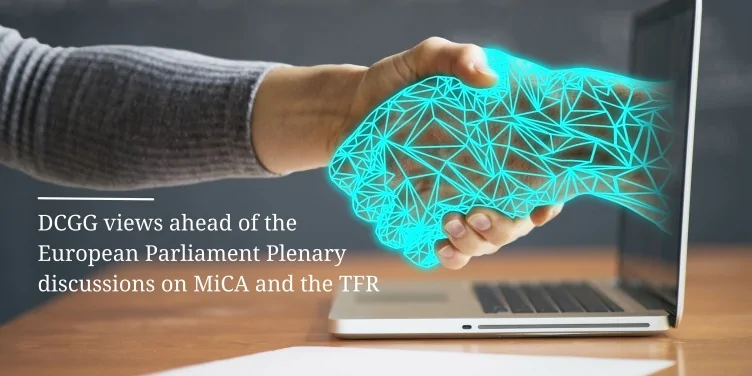Today, the European Parliament enters Plenary discussions to approve its positions on MiCA and the TFR. DCGG’s members, and the crypto-asset industry at large, will have to comply once these frameworks are officially enforced in order to (continue to) provide services to EU customers. We welcome the progress made throughout the legislative development and hereby offer some of our takes on the future rules ahead of tomorrow’s vote aligned with our objective of achieving a more innovation-friendly and technology-neutral regulatory approach.
Transfer of Funds Regulation
DCGG overall welcomes the adoption of this important file to fight money laundering and ensure more transparency for transfers and transactions through traditional payment rails and on the blockchain. However, DCGG regrets that in some instances the requirements for the crypto industry have not fully taken into account the specificities of the technology and could potentially harm innovation in the sector.
To solidify this file’s commitment to the FATF recommendation on VASPs in the context of monitoring of transfers for AML purposes, the initially proposed by the EC de-minimis threshold of EUR 1000 should be re-introduced within TFR. This would provide the necessary consistency with international guidelines, and proportionality and legal certainty for industry participants.
We support the rationale of introducing comprehensive verification requirements for VASPs. Yet, our view is that the required due diligence should be applied to the extent that this is operationally possible for VASPs. Verification of all transfers or batches of transfers could in some cases result in an excessive administrative burden for operators, and for smaller operators the implementation of such controls could be costly and burdensome. Proportionality to the size, volume and activities of a VASP is needed.
Self-hosted wallet transfers should be allowed within the remit of this Regulation, thus adhering to the principle of self-custody and consumer agency, and in alignment with the EU’s core convention of enabling the fundamental freedoms of European citizens.
In cases of transfers coming from self-hosted wallets, our view is that VASPs should have limited liability over the accuracy of the data accompanying the transfers, and should comply with the requirements to the extent that this is operationally feasible, e.g., verifying the completeness of the information sent.
Markets in Crypto-Assets Regulation
DCGG strongly believes that the EU has the unique power to bring together disparate players in the cryptoasset community, establishing a strong, risk-managed foundation for the overarching access to cryptoassets. We support the rationale of the harmonised EU-wide framework that is the Markets in Crypto-Assets Regulation, however we have identified certain areas of concern that could promote a disproportionate approach to certain issuers and operators, and could disincentivise businesses from entering the EU market. We believe the following points merit further regulatory attention:
The proposed circulation limits on non-EUR-pegged stablecoins are severely restrictive and would dis-incentivise issuers from entering the EU market, thus blocking significant capital streams that contribute to the larger economy. While we concur that increased monitoring over issuers with higher circulation is sensible, we disagree with the proposed limits on circulation especially when issuers implement special controls to avoid concentration risk. With multiple transactions recorded each day, the barrier these limits propose could significantly delay the development of the EU crypto market.
Authorising and regulating stablecoins purely on their use-case (i.e., “means of exchange”) is entirely inconsistent with market dynamics – issuers, responsible for seeking authorisation, cannot exert control on the use cases of their tokens in perpetuity.
Redemption fees are an essential part of the business model for EMTs and ARTs. Costs would be incurred by the issuer for performing the redemption process and issuers should be allowed some way to cover these costs, which would also allow for sustaining a lower initial cost of the token for EU consumers.
There are industry participants who make and sell hardware products for self-custody of assets, and their primary interfaces do not offer actual services related to the handling of crypto assets for their customers. We urge the Parliament to safeguard a consistent and proportionate definition of crypto-asset service; otherwise this would create undue burdens for the companies that only sell hardware wallets to customers for their individual use as they would be required to get authorised under MiCA. This would also be consistent with the Commission’s initial proposal.

